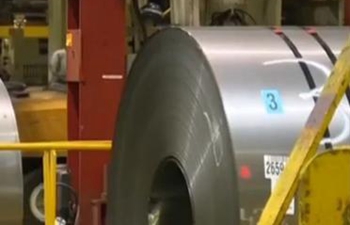HOUSTON, July 10 (Xinhua) -- Two engineers with the University of Houston, Texas, the United States are working on nanoparticles to seek ways of lowering antibiotic resistance, according to the university's news release on Tuesday.
Antibiotic resistance is one of the world's most serious threats to public health, forcing the use of medications that are more toxic, more expensive and not always effective. There are several causes, including over-prescription of antibiotics in both humans and in livestock.
Debora Rodrigues, associate professor of civil and environmental engineering, and Stacey Louie, assistant professor of civil and environmental engineering have embarked on the project to determine whether the use of tiny amounts of antibiotics embedded in corn-based nanoparticles could allow the use of lower dosages and avoid wiping out the microbiome - the collection of both healthy and disease-causing bacteria found in the intestines - and the resulting genetic mutations that lead to antibiotic resistance.
They have developed a reactor to simulate pig intestines in order to study how antibiotics react in the pig microbiome.
"Pigs have a lot of similarities to humans," said Rodrigues, principal investigator, adding "we are working with livestock, but ultimately it could be helpful for humans."
Collaborators Cristina Sabliov and Carlos Astete at Louisiana State University will create corn-based nanoparticles loaded with antibiotics for the project.
Early data supports the researchers' hypothesis that the plant-based nanoparticles will be less toxic than many other forms of nanoparticle. They are designed to dissolve in the simulated pig intestine.
The goal is to determine if administering antibiotics in a different way will avoid the widespread damage to the microbiome associated with current practices.
"We'll study how the microbial community is changing and what genes related to antibiotic resistance are emerging," Rodrigues said.













